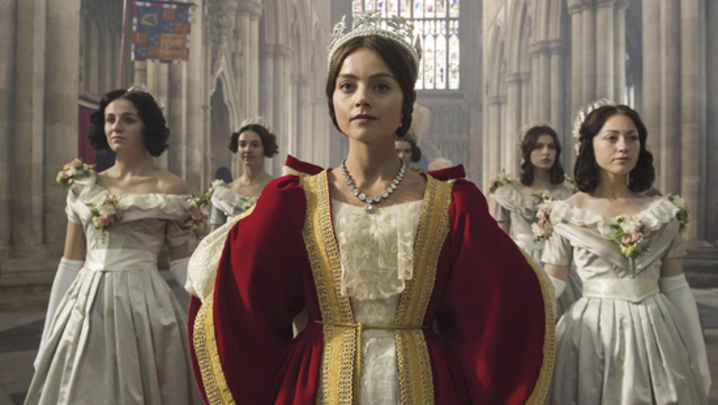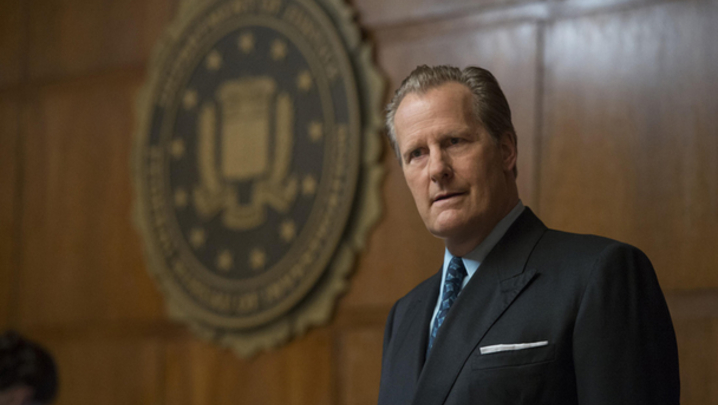Can BritBox, the subscription streaming service backed by the BBC and ITV, succeed in the world’s most competitive TV market, asks Lisa Campbell.
If BritBox, BBC Worldwide’s international subscription video-on-demand (SVoD) service, is to stand any chance of converting US consumers, it will need a major marketing push. Despite a plan to launch by the end of March, the joint venture between the BBC, ITV and AMC Networks that promises to deliver “best of British” content, it appears that even key industry players are unaware of its existence.
The popularity of Netflix, Hulu and Amazon Prime is self-evident, so a major challenge will be conveying exactly what it is that sets BritBox apart from these well-established competitors. And this is in a country where the take-up of online services is much more advanced than in the UK.
“BritBox will be the best and most comprehensive British streaming service in the US,” said Simon Pitts, Managing Director of online, pay-TV and interactive at ITV, when the service was announced in December. He revealed that it would offer “a rich catalogue of classic, new and exclusive shows, easily accessible to US viewers in one place”.
At this stage, there are no plans for any original commissions, although sources suggest that these are on the long-term roadmap, and that BritBox plans to invest in co-productions.
For now, the catalogue includes newer UK dramas New Blood, In the Dark, Tutankhamun and The Moonstone, plus season premieres of Cold Feet and Silent Witness.
Soaps, including EastEnders and Emmerdale, will be available as soon as 24 hours after their airing in Britain and there will be a collection of classics from the ITV and BBC archives: Pride and Prejudice, Inspector Morse, Keeping Up Appearances and Fawlty Towers are among them.
Whether this really constitutes the “best of British” is a serious question, given that big BBC hits such as Sherlock and Call the Midwife are on Netflix in the US, while Poldark and Downton Abbey are on Amazon Prime.
However, some of the older content, particularly period dramas such as Brideshead Revisited and Upstairs Downstairs, could prove popular in the trail of Downton and The Crown. But new series, such as daytime drama The Moonstone, look unlikely to have the same instant mass appeal. This means that pricing – likely to be around $10 a month – will be key during this launch phase. As Tom Harrington of Enders Analysis suggests, “At $10 per month, which is around the cost of the HD Netflix subscription, it is not a particularly compelling proposition, even in the wake of the US excitement over Downton and their continued curiosity around cord-cutting.”
The price is also higher than for other US streaming services. AT&T and the Chernin Group’s Fullscreen is $5.99 per month; Hulu Plus is $7.99 and YouTube Red – which is popular largely thanks to its Google Play Music offering – is $10 per month. Walter Presents – a showcase of foreign drama – launches in the US in March at $6.99 per month.
Lori Robinson-Hogan, executive vice-president of New York-based media agency The Specialist Works, believes that consumers will be willing to pay for a specialised service offering high-quality British content. She notes that the Brits are all over US TV right now, whether it’s The Crown on Netflix, AMC’s The Night Manager, Amazon’s Catastrophe and Fleabag, Ron Howard’s Beatles doc, Eight Days a Week, on Hulu or Victoria on PBS.
Robinson-Hogan adds that cord-cutters and cord-nevers (typically younger viewers) are happy to pay for multiple streaming services as this is still cheaper than a cable subscription.
The content currently available on BritBox suggests that the backers’ target is a more mature audience. Even so, she says, “As long as there’s a unique selling point and people become very engaged in certain shows, they will pay and will think that it’s the best of British, whether it is or not.
“My view is that SVoD is going to become a space for the super-niche."
“But marketing will be the number-one challenge – getting it out there successfully and efficiently, given that rival services, such as Netflix and Amazon, have put a lot of money into advertising.”
In an interview at BBC Showcase last month, BBC World director of scripted content Liam Keelan stressed that BritBox is, indeed, a different proposition to Netflix. At the same time, he outlined his aim of continuing to work with the market leader. “There’s a definite appetite for this kind of service – for shows that aren’t on those other platforms. But I would not compare it to Netflix – it’s different to that,” he said.
Meanwhile, some observers contacted by Television, including Brits living in the US, question whether the soaps will be of interest to anyone beyond the ex-pat community – and whether that’s a big enough niche to support the service.
Robinson Hogan offers a supportive view. She believes that American viewers are increasingly interested in the grittier or more realistic British drama series. Happy Valley on Netflix is a notable example, she says: “Many dramas here, particularly the soaps, are full of perfect-looking people with lots of money. The British soaps are much more relatable.”
What makes the corporation so certain that this service will succeed, when, in June 2015, it scrapped the global version of its iPlayer service? One executive close to the business suggests that its failure was largely down to a lack of investment.
Reports at the time also suggested that the service could not be rolled out in the US because pay-TV operators were threatening to drop the BBC America channel. They feared that, if the app were launched locally, it would cost them viewers.
This new push into the US, and the confidence that comes with it, might partly be explained by the success of another subscription streaming service, Acorn TV. Described by the New York Times as “a perfect streaming service for the Anglophile in your life”, Acorn TV was spun out of a DVD business and began stocking exclusive content. The first such show was the US premiere of Doc Martin, series 6, in 2013.
As of the end of 2016, it had 430,000 subscribers, each paying $4.99 per month. Going forward, however, it could find that Soumya Sriraman, president of BBC Worldwide North America, and her counterparts at ITV, are less willing to strike such deals as they expand on their own offerings.
Rod Henwood, former CEO of Banijay UK, who was involved in the BBC’s Project Kangaroo (the online service scuppered by regulators) and launched 4oD (now All 4), believes that, while BritBox is not without its risks, it has a good chance of succeeding.
“My view is that SVoD is going to become a space for the super-niche, with content propositions that are clearly defined and targeted at an upmarket audience. It is comparable to multichannel, where you focus on the passionate interests of a defined group,” he argues. “BritBox has access to content assets and, with AMC able to provide cross-commercial leverage in the US, it’s got a chance of success.”
Long-term success in the US, and globally, will, as always, be all about the content. Harrington says: “If anything, the pop-cultural impact that Downton had in the States would have been a driving factor behind the realisation that there could be something to this idea. The fact that it’s not on the service, and nor are any of its comparable contemporaries, will, initially, be a stumbling block.
“That being said, I doubt that the initial library is reflective of how the BBC and ITV foresee the future of the service. The SVoD market is worth around $8bn in the US, Britbox gives them an [eventually worldwide] platform for their content. This should, at the very least, increase their leverage when it comes to content licensing negotiations.”





